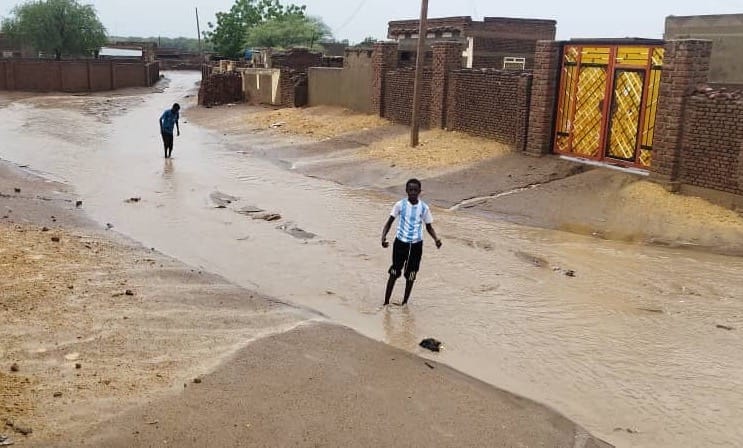Bakeries Provide a Lifeline
Sudan's already struggling power infrastructure has been hit hard by more than a year of civil war. Nasry Hilal reports from Sennar about the struggles faced by locals to access electricity.
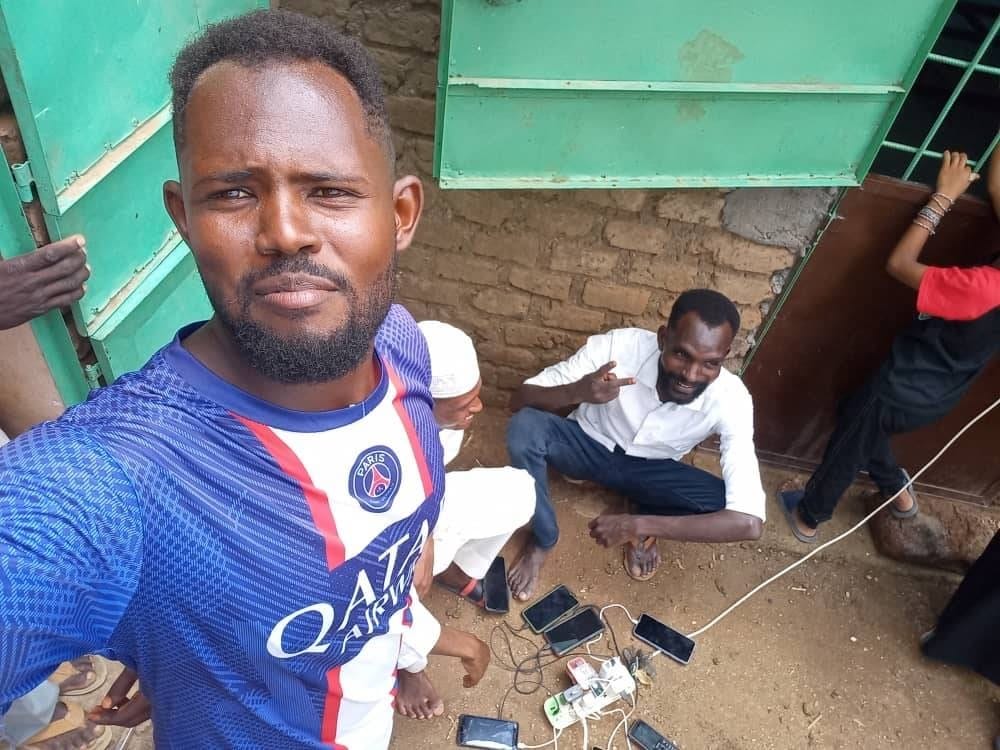
written by Nasry Hilal, with support from the Alive-in/ Editorial Team.
This story is part of a partnership between Alive-in/ and DT-Institute to support Sudanese journalists inside and outside Sudan. DT Institute is both a funder and an implementer of peace and development projects. More stories can be read in Arabic on the Alive-in/Sudan Facebook page.
Alive-in is a not-for-profit media agency that mentors journalists from underrepresented communities to increase local and national understanding.
If you are able to support our work financially, please click the button below.
SENNAR, SUDAN–Dozens of men gather in back alleys or outside bakeries, anxiously waiting their turn to recharge their phones, a crucial lifeline now that Sennar is surrounded by the Rapid Support Forces. The men huddle around powerstrips surrounded by tangles of phone charging cords, each taking his turn. Electricity has become so scarce that the bakeries now permit each individual less than thirty minutes to charge his device.
On June 29th 2024, the Rapid Support Forces attacked Sennar city, the capital of Sennar State, and took control of the city. Since then, due to artillery and aerial bombardment, the state has been in complete darkness as the electricity sector was affected by the bombing. This disruption halted daily activities and severed communication between people.
Sudan depends largely on hydroelectric power and biomass for most of its energy needs in the country. Facts about electricity access in Sudan are hard to determine, and can be contradictory. For example, according to the World Bank, in 2022, the last year for which data is available, just 63% of Sudanese citizens had access to electricity. However, according to research by the Transnational Institute, “60 percent of the Sudanese population have been living without electricity.”
All across Sudan electricity is an increasingly scarce yet absolutely necessary resource depended on for water and various aspects of life. The most significant impact has been on mobile phones, which are essential for citizens, especially for receiving remittances from abroad. This dependence has increased due to the war's devastation, which has increased unemployment and left many people in a state of idleness, incapable of earning a living on their own.
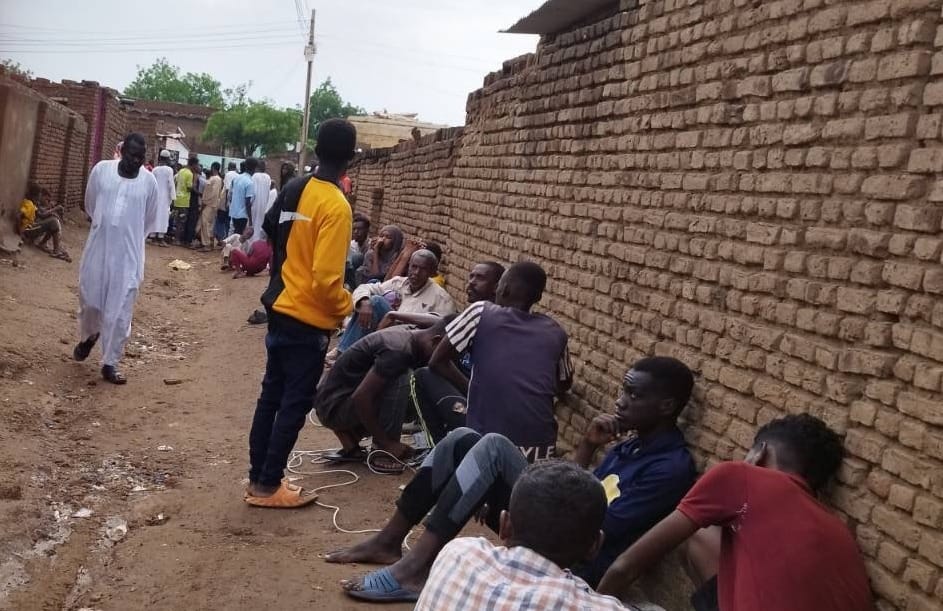
These circumstances have forced citizens to seek solutions for charging their phones to stay connected with the world and manage their livelihoods. One of the main solutions has been to use bakeries, where residents of Sennar flock from early morning, each carrying a power strip, multiple chargers, and phones.
Earlier this month the Ethiopian news outlet The Reporter published a story about Sudan’s unpaid electricity bills, reporting that the debt now exceeds ninety million dollars. Despite the huge debt, Ethiopian Prime Minister Abiy Ahmed said Ethiopia, “will continue supplying electrical power to Sudan despite its inability to pay.”
From my own experience, as I share in the same struggles, there is an additional challenge: the lack of fuel for some bakeries. This forces us to travel long distances searching for a functioning bakery. Despite the harsh conditions, adapting to the new reality has become a necessity, as if it were a routine.
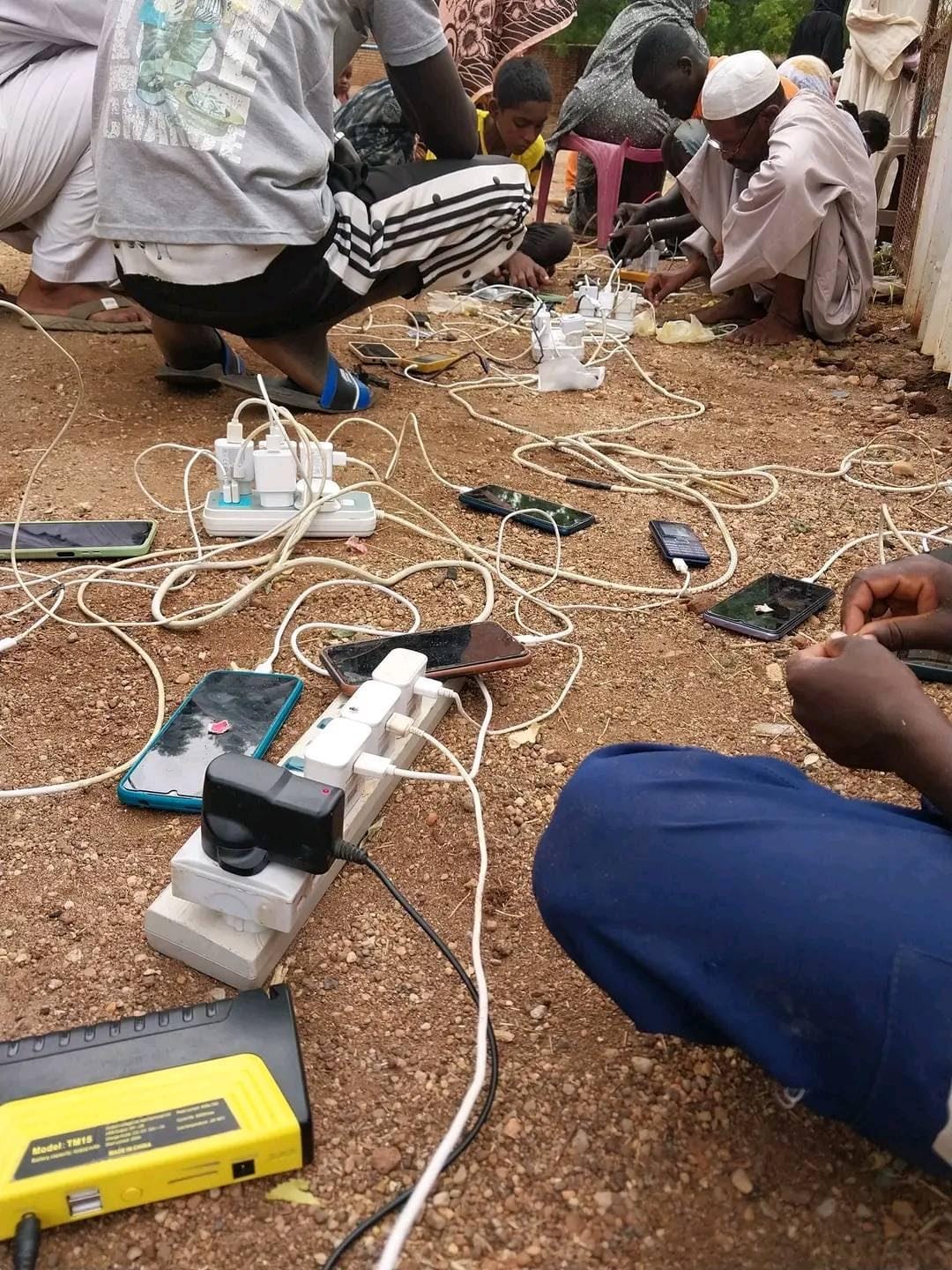
Many airtime sellers and mobile money transfer service providers spend considerable time looking for charging points. Due to these challenges, the sale of falafel in front of bakeries has flourished, as people waiting for their phones to charge often buy some bread. The price of bread has doubled, making a loaf cost 200 Sudanese pounds, up from 100 pounds.
Some mobile money transfer service providers have told me about the impact on their work due to the long hours spent charging their phones. Sometimes, they even sleep in front of bakeries waiting for midnight when the generators start, and the bakeries begin operating. One of those whom I have become friends with during these circumstances humorously remarked, “Bakery owners will enter heaven for unknowingly saving many lives by providing phone charging services.”
However, despite the great service provided by the bakeries, the generators significantly damage phone batteries due to the unstable electricity or poor-quality wiring for power strips. Nonetheless, everyone is compelled to continue this process, even if it means their phones might eventually be damaged.
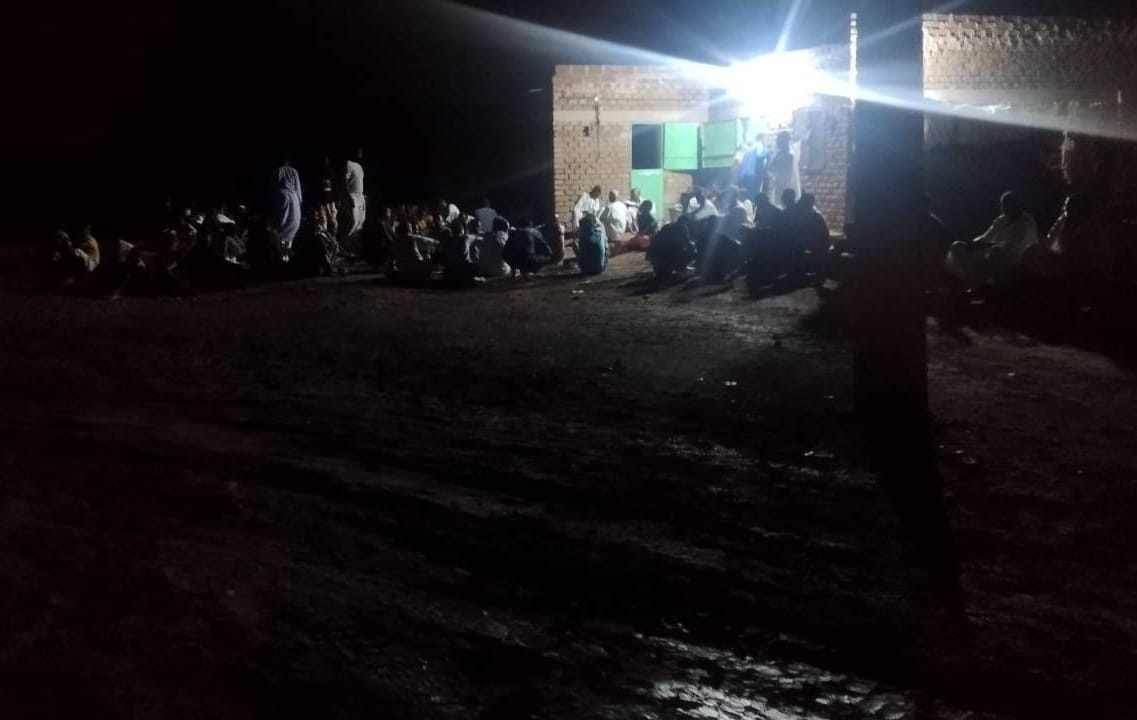
Photos capture some of these scenes, which occur at all hours; at midnight, in the morning, at noon, and in the afternoon, people constantly gather wherever they hear the sound of a working bakery or any other institution that has responded to the crisis by helping with charging.
More recently, as the rainy season has arrived, people in Sennar face a new complication. Although some bakeries are using generators, many are supplied by solar panels. In the last few weeks Sennar has experienced heavy rains which greatly reduces the performance of the solar charging options available to local people.
Overall, the power outage has had a profound impact on life in Sennar and its surrounding villages. It has affected various aspects of life, from household refrigerators to other electrical appliances that have become part of daily life. Suddenly, life has reverted to a time before Thomas Edison.
